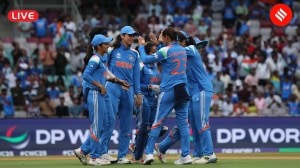Cell cos owe Rs 330 cr to Govt
NEW DELHI, JAN 30: As the telecom sector awaits a final package for the existing licensees, the issue of cellular operators in the four m...

NEW DELHI, JAN 30: As the telecom sector awaits a final package for the existing licensees, the issue of cellular operators in the four metros has been lost in the confusion. Cellular operators together owe the Government Rs 330 crore on account of licence fees for the last one year alone. What is surprising about the metro operators is the fact that the metro defaulters have not even securitised these outstandings.
The metro licences were completely different from the other licences given to cellular operators. The metro licences carried a fixed licence fee in the first three years of operation.
For Mumbai this had been worked out to Rs 21 crore over a three-year period — Rs 3 crore in the first year, Rs 6 crore in the second and Rs 12 crore in the third. For Delhi, the fee was 14 crore — Rs 2 crore in the first year, Rs 4 crore in the second and Rs 8 crore in the third. Calcutta had a three year fee of Rs 10.5 crore — Rs 1.5 crore in the first year, Rs 3 crore in the second, and Rs 6 crore in thethird. For Chennai, the fees were Rs 7 crore — Rs 1 crore in the first year, Rs 2 crore in the second and Rs 4 crore in third.
From the fourth year onwards, on the basis of a revenue share on the rental received by metro operators and the airtime usage, a licence fee was worked out on a per subscriber basis amounting to Rs 6,023 per subscriber. The Licence Agreement also provided for a minimum licence fee payable by the operators for the period between fourth to sixth year and from the seventh to the 10th year. These were calculated for Mumbai as Rs 18 crore and Rs 24 crore, respectively, for these two periods, Rs 12 and Rs 16 crore for Delhi, Rs 9 and Rs 12 crore for Calcutta and Rs 6 and Rs 8 crore for Chennai.
While most operators in the circles have at least given part bank guarantees for their outstandings, the metro operators have bank guarantees only for the amounts required for the first three years of licence fees. The fourth year of operations which began in November last year for most of theoperators, have seen no corresponding hikes in their bank guarantees.
All this while, the metro cellular operators have been witnessing a decline in their subscribers. Subscriber figures which peaked in December 1997 and January 1998 for most operators, touching nearly 5.5 lakhs in the four metros, are now down to 4.8 lakh. In fact, when the Group on Telecom was deciding the New Telecom Policy, the metro operators offered to withdraw their court case against MTNL’s entry into cellular operations if the Govt agreed to ensure that MTNL’s business will be a separate company to avoid cross subsidisation, stop the limited mobility services through the WLL and give the metro operators a reasonable revenue sharing arrangement instead of the high per subscriber licence fee charged. This olive branch by the industry actually achieved little apart from driving deep fissures within the various operators dividing between metro and circle cellular operators.





- 01
- 02
- 03
- 04
- 05


























